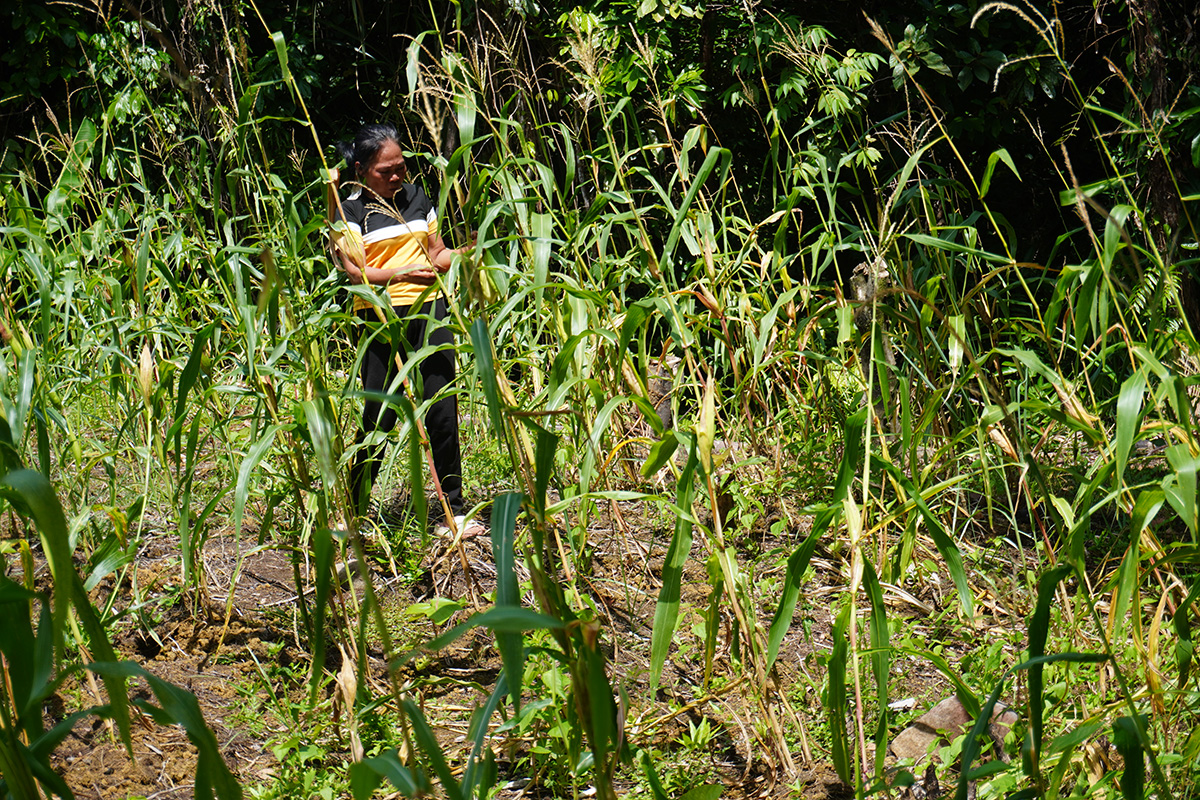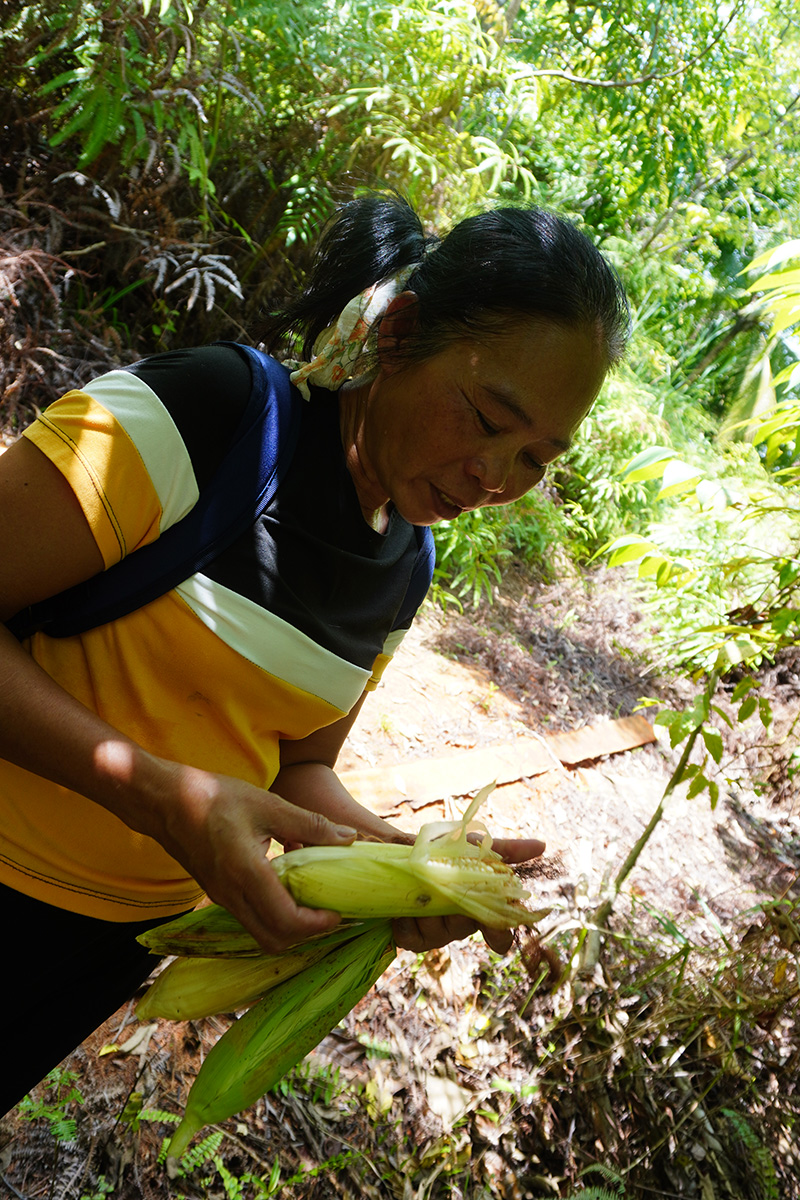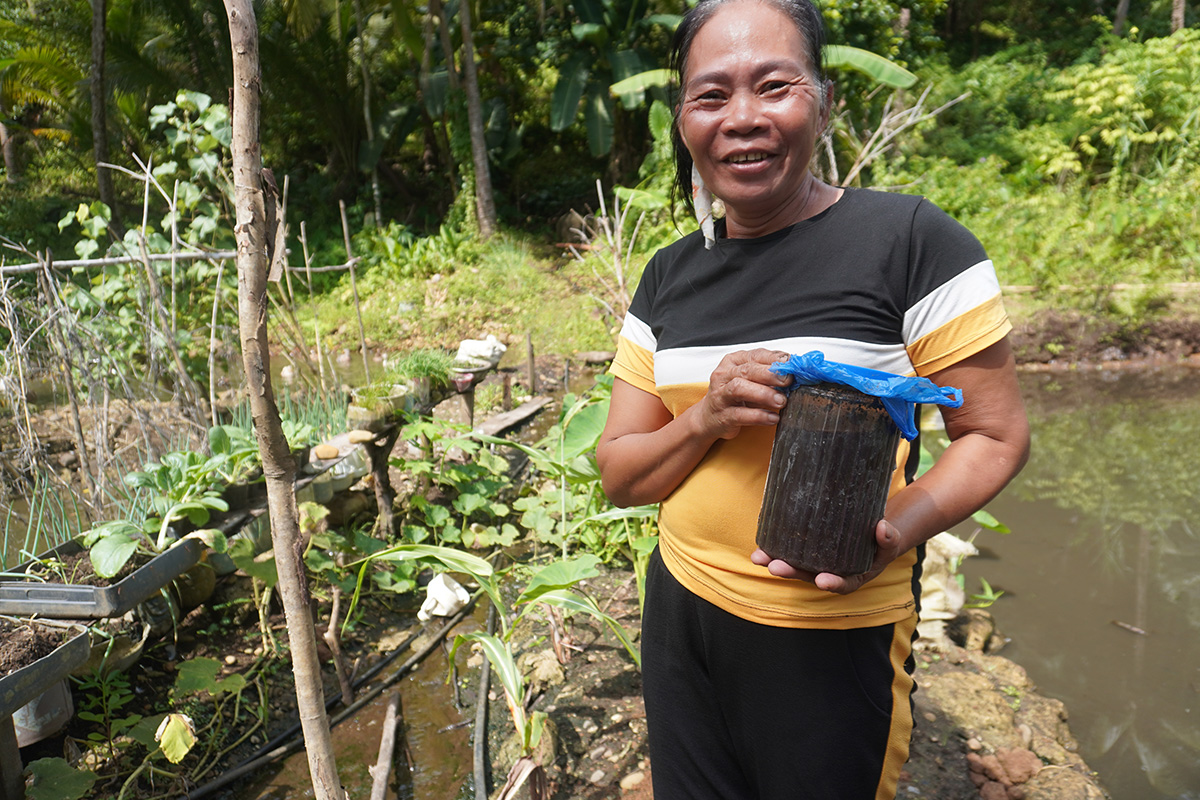In Stewardship, the Tiniest Things also Count the Most
Marietta’s story below was written by Clagel Nellas, Executive Director of ABM AID’s partner, IFI-VIMROD, in the Philippines. Marietta is one of many Indigenous farmers being supported by IFI-VIMROD to use traditional seeds to revive the growth of Indigenous crops.
Marietta Tulang, 58, and her husband never ceased working incredibly hard for their ten children. Early in the morning, she ensures that none of them go to school with an empty stomach.
Despite being in a coastal area of Silago, Southern Leyte, the Philippines, the consequences of overfishing and climate change have made fishing income unfavorable for the locals. The small farm has become the immediate source of food and livelihood for Marietta and her family.
Marietta was reluctant to take part in the development initiatives of ABM AID’s partner, VIMROD, believing that only church members of the Iglesia Filipina Independiente (IFI) could avail themselves of the social ministry programs.
When IFI-VIMROD, in partnership with Anglicans in Development (AID) established KKMH (Organization of Vendors in Hinalaran) in 2020, it quickly rose to prominence as one of the vibrant, multireligious community-based organizations that has been giving residents of two Silago communities access to goods and the chance to borrow food supplies, particularly when unfavorable weather conditions affect fishing.
After leaders laid out the non-sectarian nature of the project to Marietta, she started to attend meetings and other project activities at KKMH. In 2023, she was elected as vice chairperson of the organization and was appointed as the focal person for seed banking and distribution.
During the onset of the climate resilience campaign in December 2023, which involved the inter-Community Based Peoples Organization (CBPO) sharing of seeds and information, Marietta was one of the individuals who took the support system very seriously.
She allocated a portion of her yard for the reproduction of vegetables, spices, corn and root-crops.
One example was the traditional sticky corn produced by a Community-based People’s Organisation (CBPO) composed of indigenous people in the southern portion of the Philippines. She only received six pieces of corn kernel which she planted carefully in sacks for reproduction.
As far as Marietta knows, Silago no longer grows traditional corn and isn’t into corn cultivation because rice now occupies a significant portion of the lowland areas.
She also applied the technologies shared by IFI-VIMROD like the use of natural compost, natural pesticides, and Fish
Amino Acid (FFA) – a fermented liquid from fish and sugar, so after four months, the six pieces of corn kernel yielded 18 ears of corn.
Her family consumed part of it, and she also gave some to other organization members. The remaining part she planted on a farm measuring 1.25 hectares. Based on their observation that each of the 40 corn plants yields a minimum of two ears, the projected yield by the end of August 2024 is 80 ears of corn.
Another story of how she makes the tiniest things count the most is when the CBPO in another part of the Southern Philippines gave her just two tiny tomato seeds. After harvesting, it yielded her seven (7) kg. She was able to sell some of it for P400.00 (about $10.50). The rest was consumed by her family and divided among the organization’s members and other community residents.
According to Marietta, since she started to plant corn and other vegetables provided through the project, her family saves around P100.00 ($2.60) daily. She uses the saved money to pay for her children’s school fees.
“There was even a time when my laundry was already piling-up because I did not have extra money to buy washing soap. I was reminded by one of my kids that we have vegetables to sell. So, I came to realize how crucial it is to increase your farm productivity,” Marietta shared.
Her harvest of crops not only allowed her to distribute them among her organization’s members, but she also shared seeds with IFI-VIMROD to support its campaign to boost the food output of other CBPOs throughout the central and southern Philippines.
“Stewardship begins with ourselves. This value is developed through experience, learning, and commitment. When the staff of IFI-VIMROD only gave me six pieces of corn kernel, and two tomato seeds, I did not think it was something silly and unreasonable, rather I saw it as a gift to teach us about developing and sustaining even the smallest things God has given us,” Marietta said.
Marietta is now selling various vegetables, giving her at least P100.00 ($2.60) in income per day.

Marietta in her field of traditional sticky corn. © IFI-VIMROD. Used with permission.

The sticky corn is harvested. © IFI-VIMROD. Used with permission.
